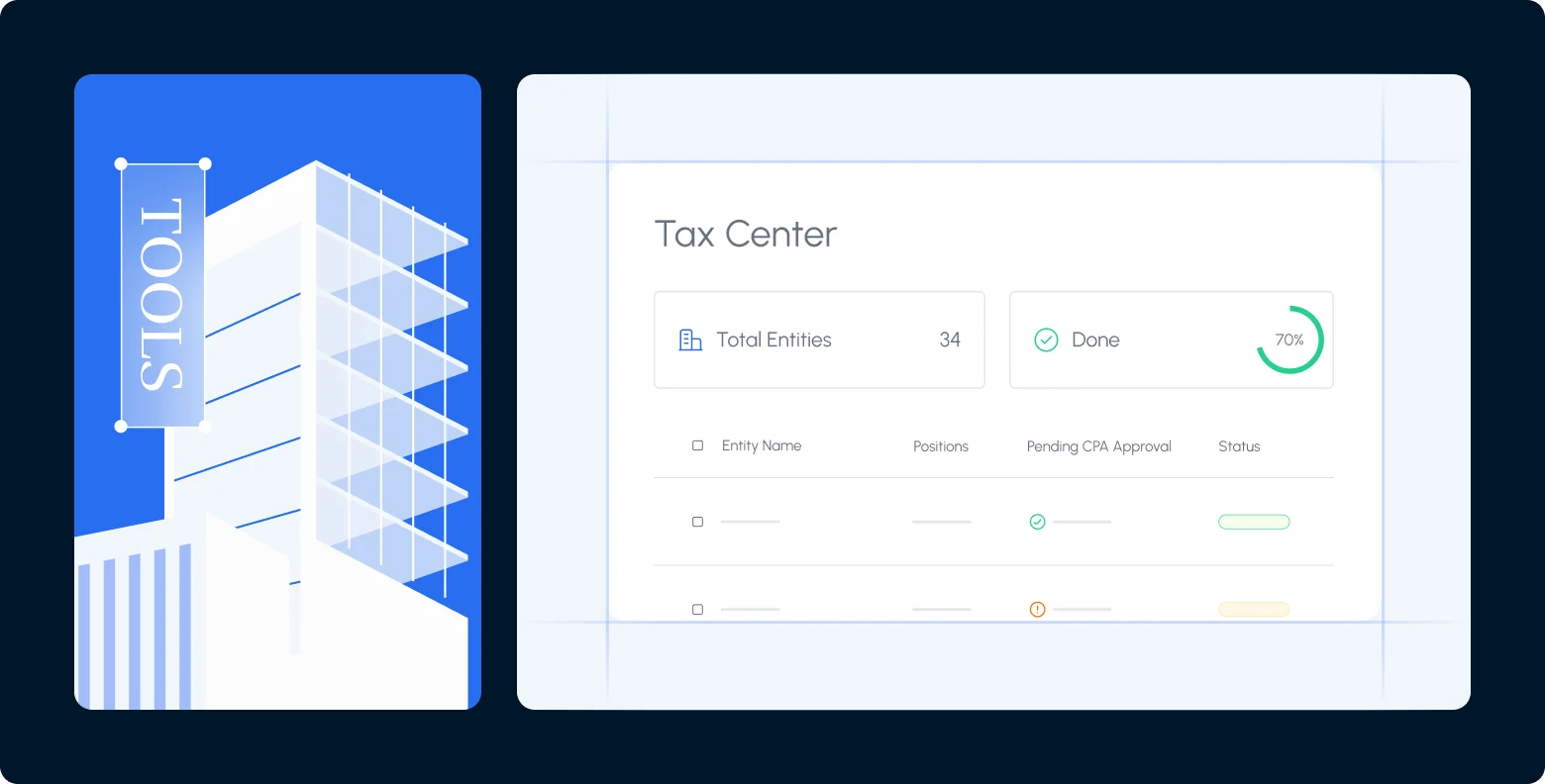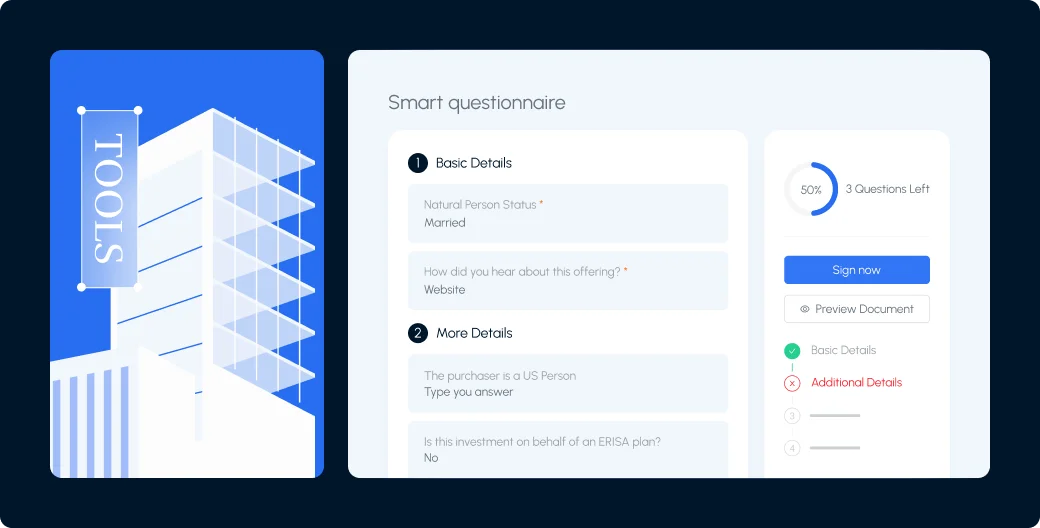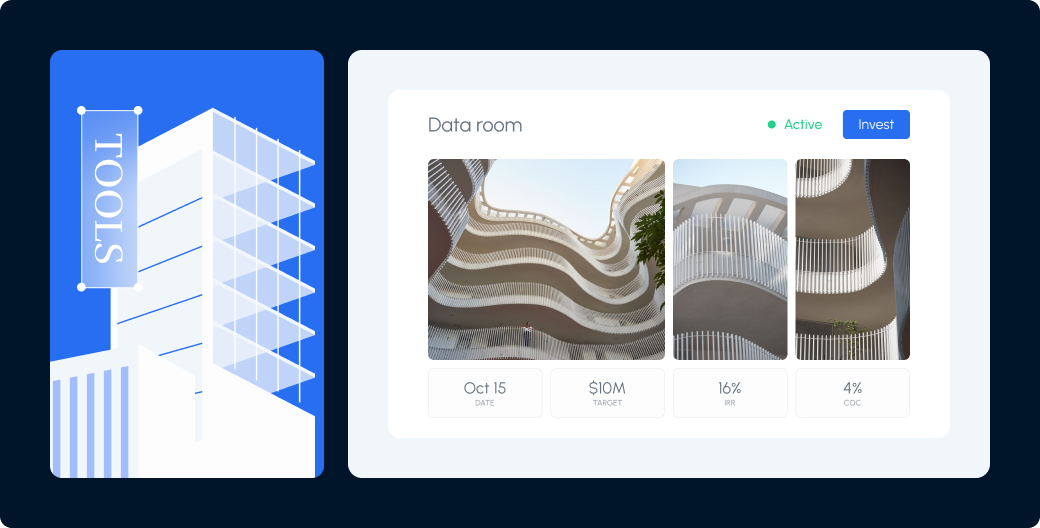Best real estate accounting software in 2026
Keeping accounting records and financial data isn’t the most exciting part of running a real estate business, but the right software makes it easier to maintain and manage. My real estate investing business started with residential properties and later expanded into hotel syndications. Over the years, I’ve used everything from spreadsheets to off-the-shelf property management software to investor management platforms.
From my experience, you can’t expect real business growth without a comprehensive financial management solution. You need a system that quickly shows you what’s working, what’s not, and helps you decide which adjustments will best support your goals.
Here are my top picks for accounting software that can help take your business to the next level in 2026.
7 best real estate accounting software in 2026
The list of accounting software below includes something for every type of real estate business.
1. Agora

Agora is a complete investment management platform built for commercial real estate firms. It simplifies raising capital, managing investor relationships, tracking performance, and investor distributions. AI-powered accounting capabilities extract data from investor documents to accelerate the tax reporting process.
Best for: Commercial real estate investment firms that want a centralized platform and dashboard to easily view all areas of their business, from investor management to distribution payments and year-round accounting.
Key features include:
- Monthly reconciliation automation: Centralize reconciliations from multiple sources, such as bank accounts, property management software, and investor records.
- Real estate accounting services: Managed support for accounts payable and receivable management, along with expense reporting by property and entity.
- Partnership accounting: Helps finance teams manage complex equity structures, capital accounts, and distributions.
- Real-Time dashboards: Centralized reporting dashboard to quickly see financial status updates and portfolio analytics.
- Document management: Organize K-1s, reports, and other tax forms with advanced search and filtering and secure document storage.
Pros
- See real-time data on investor status, engagement, financial metrics, and property performance from a single dashboard.
- Automate and securely distribute tax forms, K-1s, and financial reports to investors with minimal manual effort.
- Managed accounting services options to provide daily bookkeeping, accounts payable/receivable, expense tracking, and ongoing transaction management.
Cons
- Focuses on investment management and fund accounting workflows and is not a general-purpose accounting software.
- Capabilities like detailed transaction entry, payroll, general ledger management, and vendor bill management require Agora’s managed financial services.
- Does not replace day-to-day accounting provided by property management companies.
Pricing
Agora offers three pricing tiers, including Essential, Pro, and Enterprise. Pricing for all plans is based on equity under management and starts at $749/month for the Essential plan. Firms that want to outsource daily bookkeeping and accounting can add Agora’s managed financial services for an additional cost.
2. QuickBooks

QuickBooks is one of the best accounting software programs for all types of businesses. It’s been around since 1992 and provides financial management of business transactions, including invoicing, payroll, and expense tracking.
Best for:
QuickBooks works best for small and medium-sized businesses, including real estate agents, property managers, and other professionals who need a reliable tool for daily financial operations.
Key features:
- Automated bank feeds & reconciliation: Automatically import and categorize bank and credit card transactions.
- Expense tracking & accounts payable: Record and categorize expenses, manage vendor bills, and schedule payments.
- Payroll processing: Calculate employee wages, tax withholdings, and handle payroll tax filings.
Pros
- Real estate professionals of all types can use this accounting software to handle basic bookkeeping and track income and expenses.
- Automation tools like bank account integration, receipt uploads, and automated invoices to reduce manual data entry.
- QuickBooks is well-known and widely used, so it can be easier to find support and resources when needed.
Cons
- It is a well-known tool for better financial management, but you need to combine it with other platforms for a complete view of real estate investment operations.
- Lacks tools for investor relations, property performance tracking, and capital management.
- Doesn’t provide capabilities specific to investment properties like maintenance request tracking, rent collection, and lease management.
Pricing
QuickBooks offers four pricing options: Simple Start at $35/month, Essentials at $65/month, Plus at $99/month, and Advanced at $235/month.
3. NetSuite

NetSuite is an Oracle product that provides cloud-based accounting software for large enterprise organizations.
Best for:
This accounting software is best for large enterprise organizations that have complex financial management needs across multiple subsidiaries and locations.
Key features:
- Financial management: Includes general ledger, cash management, and financial close activities to record transactions, track cash flow, and complete accounting periods
- Transaction Management: Invoicing, billing, accounts receivable, and accounts payable, along with payment processing.
- Global and multi-entity support: Manages multi-currency transactions, consolidated reporting, and compliance with international accounting standards for real estate owners operating in a global capacity.
Pros
- Cloud-based accounting app with automatic software updates.
- For large firms with global operations, it supports multi-currency, multi-entity, and consolidated reporting.
- Automation features like bank reconciliation, scheduled financial reporting, and recurring invoice creation.
Cons
- Subscription costs can rise substantially with added modules and increased users.
- Customization for property investors may require technical expertise and ongoing maintenance.
- Implementation can be complex and resource-intensive.
Pricing
NetSuite does not provide public pricing on its website and requires potential customers to contact the company directly for a quote.
4. Xero

Xero is accounting software used by small and medium businesses. It provides basic bookkeeping capabilities, such as invoicing, bank transaction imports, and expense tracking.
Best for:
Small and medium-sized real estate investors that need a user-friendly accounting software to handle daily operations.
Key features:
- Online invoicing: Real estate owners can create and send customizable invoices, automate payment reminders, and track rent payments in real time.
- Bank reconciliation: Automatically import bank transactions and match them with your records.
- Expense tracking: Capture and categorize expenses easily using a mobile app or connected tools.
Pros
- Scales with unlimited users on all plans without extra costs.
- Real-time bank feeds update daily for cash flow visibility.
- Integrates with a large number of third-party apps for extended functionality.
Cons
- Customer support lacks dedicated phone support, relying mostly on email and chat.
- Limited customization options, which may not suit businesses needing tailored solutions.
- Some features may be challenging for non-accountants or novice users to fully understand.
Pricing
Xero offers three pricing plans: Early, Growing, and Established. The Early plan costs $20/month, Growing is $47/month, and Established is $80/month.
5. Sage Intacct

(credit: Microsoft – https://azuremarketplace.microsoft.com/en-us/marketplace/apps/sage_atlanta_ga_us.sage_intacct?tab=overview)
Sage Intacct is a cloud-based accounting software for mid-sized and growing businesses. It automates accounting and financial processes like accounts payable and receivable, bank reconciliations, and expense management.
Best for:
Sage Intacct is best suited for real estate businesses with increased complexity like operating multiple entities, multiple locations, or across different currencies.
Key features:
- General ledger: Configurable ledger structure allowing tracking and reporting by various business entities like department, location, or project.
- Automation & workflow: AI-assisted automation for closing processes, variance analysis, and automating routine finance tasks.
- Expense and time tracking: Track employee expenses and timesheets and link receipts to specific line items.
Pros
- Customization with workflow configurations, multi-entity support, automation features, and dashboards.
- Integrates with other business platforms like Salesforce, various CRMs, and payroll services.
- Robust features to handle multiple entities, currencies, and large transaction volumes.
Cons
- Higher price point compared to entry-level accounting software. Extra costs for additional modules, users, and support.
- Advanced needs for HR, payroll, and some inventory features require third-party integrations.
- Highly customizable during initial implementation, but difficult to reconfigure later due to compliance requirements. Most changes may require expert assistance.
Pricing
Potential customers must contact Sage Intacct directly for a custom quote.
6. Zoho Books

Small businesses, freelancers, and growing companies can use Zoho Books to manage finances, invoicing, expenses, bank reconciliation, and inventory control.
Best for:
Zoho Books is best for real estate brokers, property managers, rental agencies, and real estate consultants who need simple accounting software.
Key features:
- Invoicing and billing: Create and customize professional invoices, send automated payment reminders, and receive lease payments for rental properties.
- Project and time tracking: Track billable hours for projects and include time entries on invoices to ensure accurate billing for maintenance requests, utilities, and other costs.
- Mobile App: Manage finances on the go with a mobile accounting app that supports invoicing, expense tracking, and access to reports.
Pros
- Free forever plan option suited for startups, freelancers, and micro businesses with up to 1,000 invoices and 1,000 expenses annually, plus the ability to manage one user and one accountant.
- Supports multiple payment gateways for online rent collection.
- Access to pre-built financial reports to see details on metrics like income, receivables, profit & loss, and balance sheets.
Cons
- Limited access to older financial data can make long-term auditing more challenging.
- Requires some manual data entry since some workflows have limited automation.
- The user interface can be complex to navigate.
Pricing
Besides the limited free plan, Zoho Books also offers three paid plans. The Standard starts at $20/month, Professional $50/month, and Premium $70/month.
7. Buildium

Buildium is a cloud-based residential property management software that supports tenant screening, rent collection and basic real estate accounting.
Best for:
Real estate investors and property managers manage multiple properties, including single-family homes, multifamily buildings, and homeowner associations.
Key features:
- Real estate accounting: Automated bank reconciliations, property-based financial reporting, and 1099 e-filing tailored for property management.
- Online leasing: Collect rental applications, screen tenants, and automate digital lease signing.
- Rent and vendor payments: Supports credit card and ACH transactions with automated fund transfers to your company’s bank.
Pros
- Strong property accounting features, including automated bank reconciliations, trust accounting, and tax-ready reports.
- Includes maintenance work order tracking and vendor management in one platform.
- Scales easily to support mid-to-large portfolios.
Cons
- Some features like eSignature, tenant screening, and ACH setup involve extra charges beyond the base subscription.
- The platform’s robust capabilities can make onboarding and initial setup more challenging.
- Buildium’s broad feature set and pricing are often more than what landlords with few properties need.
Pricing
Buildium has three pricing plans. The Essential plan starts at $58/month, Growth begins at $183/month and the Premium plan is $375/month.
Key benefits of real estate accounting software
The right software should make your business more efficient and easier to manage, with benefits like:
- Streamlined property and investment accounting: Real-time visibility into operational and investment data can guide strategic planning and investment decisions.
- Reduced manual work and fewer errors: Integrated workflows and automation reduce data entry and increase back-office efficiency.
- Improved compliance and audit readiness: Organized records and built-in reporting make it easier to stay on top of requirements and prepare for audits.
- Enhanced cash flow tracking and forecasting: Having a centralized location to track income and expense data simplifies planning.
- Faster tax preparation and filing: Consolidated financials simplify tax season and cut down the time spent pulling reports together.
- Anywhere, anytime access: Cloud-based for convenient access from any device.
Must-have features to look for in real estate accounting software
The real estate accounting software you choose should have the following capabilities:
| Feature | Details |
| Core accounting functions (GL, AP, AR, and reconciliations) | Track cash flow and overall financial status |
| Real estate-specific tools | Manage leases, CAM calculations, and property-level reporting |
| Payment processing and invoicing | Simplify rent collection and invoicing |
| Automated bank feeds | Reduce manual entry by syncing financial accounts |
| Integrated payroll | Automate payroll to reduce back-office workload |
| Financial reporting and dashboards | Provide insights into overall business performance |
| Secure data and compliance | Verify safe storage, retrieval, and compliance retention |
| Third-party integrations (CRM, banking, property management) | Connect operational tools to reduce duplicate work |
- Core accounting functions (GL, AP, AR, reconciliations): You’ll need at least these basics to understand cash flow and overall financial status for your real estate business.
- Real estate–specific tools (lease tracking, CAM calculations, property-level reporting): Industry-specific capabilities that allow you to track the status of leases, determine costs for common areas, and report on individual property performance.
- Payment processing and invoicing tools: The right solution should make it easy to collect revenue through rent and invoicing.
- Automated bank feeds: Increase efficiency by connecting your bank accounts, credit card, and other financial data to reduce manual data entry.
- Integrated payroll processing: Automating payroll reduces back-office work and makes one of your biggest expenses easier to manage.
- Financial reporting and dashboards: Quickly get a handle on the overall status of your real estate business with reports and performance dashboards.
- Secure data storage and compliance features: The right software keeps information safe, makes it simple to retrieve, and holds it as long as you need for compliance.
- Integrations with CRM, banking, and property management software: The more your real estate accounting software integrates with your other tools, the less time you spend juggling data between them.
How to choose the right accounting software for your real estate business
Here are a few things to keep in mind when choosing the right accounting software for your business:
- Create a list of requirements: Start by outlining what you need for your business. Don’t just focus on basic accounting features. Consider how the software could also help automate tasks and connect workflows across other parts of your operation.
- Match features to your business size and portfolio type: Make a shortlist of real estate accounting software that supports your needs today as well as future investment plans.
- Check integration capabilities: List out all the software you leverage today and verify if the software has existing or planned integrations for faster operations.
- Assess reporting and analytics needs: Evaluate the solution’s ability to pull information into a central view so you can quickly make business decisions.
- Ensure scalability for growth: Look for software that can grow with your business so you don’t have to switch platforms later.
- Evaluate ease of use and onboarding: The best accounting software should be user-friendly, provide an onboarding support team and give you several options for support when needed.
- Compare total cost of ownership: Look beyond the initial acquisition cost and consider fees for specialized features and the recurring costs of running the software.
 Expert tip: Choose CRE accounting software based on operational scope, not just entity count
Expert tip: Choose CRE accounting software based on operational scope, not just entity count
- Prioritize feature depth over general-purpose breadth. Platforms like Agora offer capital account management, waterfall modeling, and tax-ready reporting that are critical for CRE firms managing LP equity, while tools like QuickBooks and Xero cater to basic GL/AP/AR needs.
- Evaluate integration and automation readiness. Real estate operators should seek solutions that automate reconciliations, sync with banking and PM software, and support secure, automated K-1 and report distribution.
- Don’t mistake “popular” for “purpose-built.” Legacy tools like NetSuite or Sage offer enterprise functionality but require expensive customization for real estate-specific workflows. Platforms like Buildium or Zoho Books work well for property management, not fund-level reporting.
- Add managed services only where needed. Outsourcing AP/AR, bookkeeping, or financial reporting to providers like Agora’s managed accounting team offers scalability without overbuilding internal ops.
Conclusion
Changing platforms isn’t quick or easy, especially when you have a team to train, integrations to set up, and in some cases, customizations to build. That’s why it’s worth taking the time to evaluate your needs, meet with different vendors, demo solutions, and try free trials if they’re available.
If raising capital is part of your business, a platform like Agora helps you manage investor relationships and integrates accounting tools so you can see all areas of your business in one central location.






![AppFolio alternatives: Best property management platforms compared [2026]](https://res.cloudinary.com/de1ep59a0/images/v1768801446/Appfolio-alternatives_cover-02/Appfolio-alternatives_cover-02.webp?_i=AA)




![Yardi pricing guide: Plans, features & cost comparisons [2025]](https://res.cloudinary.com/de1ep59a0/images/v1765896745/Agora-vs.-Yardi/Agora-vs.-Yardi.webp?_i=AA)